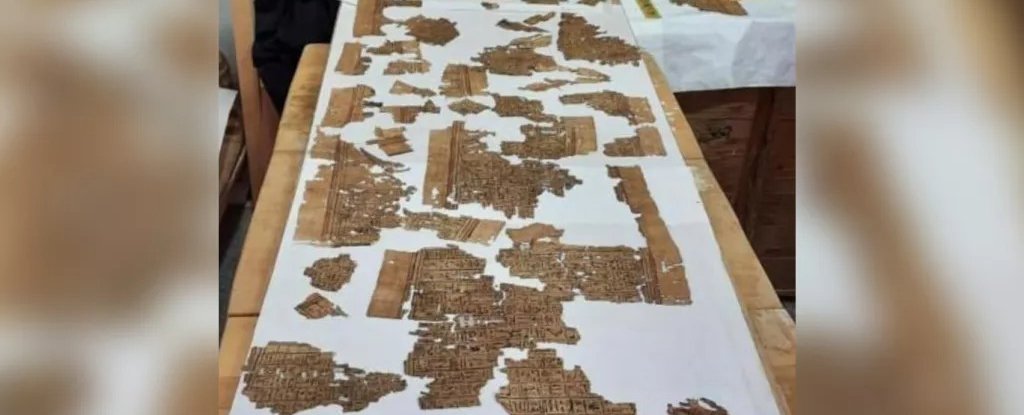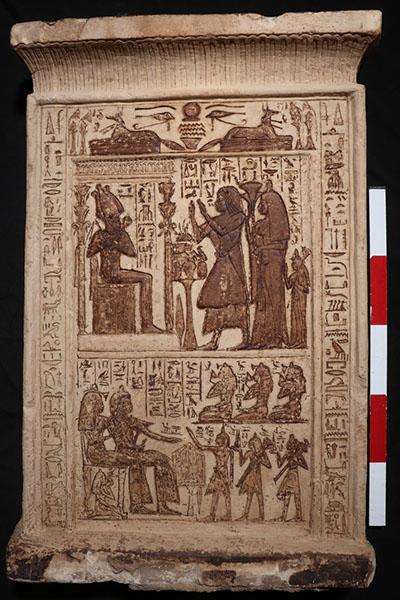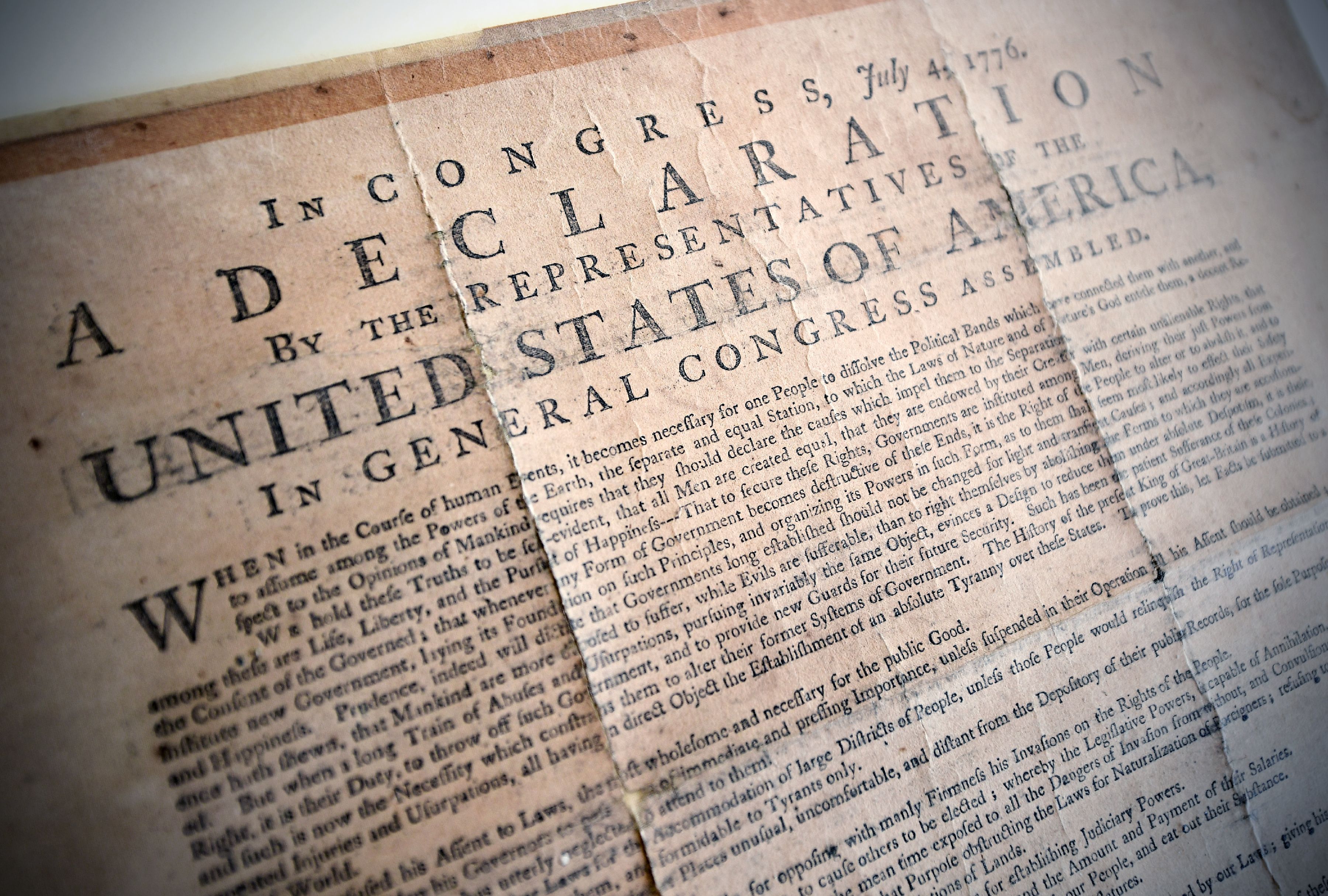
Posted on 01/20/2021 6:11:10 AM PST by Red Badger

(Egyptian Antiquities Ministry)
-------------------------------------------------------------------------------------------
A funerary temple belonging to Queen Nearit has been discovered in the ancient Egyptian burial ground Saqqara next to the pyramid of her husband, pharaoh Teti, who ruled Egypt from around 2323 BCE to 2291 BCE, the Egyptian antiquities ministry said in a statement.
Made of stone, the temple has three mud-brick warehouses on its southeastern side that held offerings made to the queen and her husband.
Near the pyramid, the team of Egyptian archaeologists also found a series of burial shafts containing the remains of people who lived during the 18th and 19th dynasties of Egypt (1550 BCE - 1186 BCE), the ministry said in the statement, which was released Jan. 16.
These burials were likely part of a Teti-worshipping cult that formed after the pharaoh's death. The cult seems to have remained active for more than a millennium, with people wanting to be buried near the pharaoh's pyramid. So far, the team has uncovered more than 50 wooden coffins in these shafts, along with a wide array of objects.
Book of the Dead
One of the most fascinating objects found in the burial shafts is a 13-foot-long (4 meters) papyrus that contains Chapter 17 of the 'Book of the Dead', a manuscript that ancient Egyptians used to help guide the deceased through the afterlife.
The name of the papyrus's owner, Pwkhaef, is written on it; that same name was also found on one of the wooden coffins and on four shabti figurines meant to serve the deceased in the afterlife.
Though scientists are currently analyzing the text, other copies of Chapter 17 contain a series of questions and answers – a cheat sheet of sorts for people trying to navigate the afterlife. Whether the newly found copy of Chapter 17 has the same question-and-answer format remains to be seen.
Inside the burial shafts, the archaeological team discovered a stela that belonged to a man named Khaptah, who is identified as the overseer of the pharaoh's military chariot, and his wife, Mwtemwia.
The top part of the stela shows the couple paying homage to Osiris, the Egyptian god of the underworld, while the lower part shows the couple seated on chairs with six of their children in front of them. Their three daughters are shown seated and smelling lotus flowers, while their three sons are shown standing.
The archaeologists aren't certain which pharaoh(s) Khaptah served. It's possible that he served Ramesses II (who reigned from 1279 BCE to 1213 BCE), a pharaoh known for his military campaigns that expanded Egypt's empire as far north as Syria.
An inscription on the stela says that two of Khaptah's children are named after family members of Ramesses II. One of Khaptah's daughters is named Nefertari (the same name as Ramesses II's main wife) and one of his sons is named Khaemweset (the same name as one of Ramesses II's sons).
Board games and mummies
Other discoveries in the burial shafts near the pyramid included a bronze ax, board games, statues of Osiris and several mummies, including the mummy of a woman who appears to have suffered from familial Mediterranean fever, a genetic disorder that causes recurring fever and inflammation of the abdomen, joints and lungs.

Above: The top of the stela shows the couple paying homage to Osiris; the bottom shows the couple seated with six of their children.
A shrine dedicated to Anubis – the god of the cemetery – was also found near the burial shafts, as were statues of the god.
The Egyptian team that made the discovery includes archaeologists from the Egyptian antiquities ministry and the Zahi Hawass Center of Egyptology at the Bibliotheca Alexandrina.
Related content:
16 of the most interesting ancient board and dice games
Photos: Mummies discovered in tombs in ancient Egyptian city
Photos: Ancient Egyptian general's tomb discovered in Saqqara
This article was originally published by Live Science. Read the original article here.
In ancient Egypt, royals got a tomb.
Servants get the Shaft........................................
Proof giants were real.
And in the posted pic, the bottom frame, looks like one of the giants sitting on a toilet just pooped out another human.
"Quickie Mart Dry Cleaners discovers lost page gl from Book of Dead in President-Elect Joe Biden's pants pocket while dry cleaning the article of clothing."

Democrat...............................
Anyone interested in doing something like this for our descendants please FReepmail me...
So many have beatt me to what I wanted to post so I will say this...Is this (what you said) an original of Baal-Peor?
Another fun thing to read about!
Thanks, SC and RedBadger!
‘Face
:o]
The first instruction: You will join the other zombies, and pursue the living.
Hieroglyphs were and are pretty neat, much better than the lowroglyphs used in other ancient civilizations. /jk
One of the kids was named Kamawasset—an interesting son of Rameses II who became a priest of Ptah and invented Archaeology to discover Egypt’s own past he was looking for the “Scroll of Life of Ra’ that is featured in the Movie “The Mummy”. He become the figure of many stories and books a bit like Indiana Jones. The books were well read and even translated into Greek and Latin to be enjoyed in Roman Times. He became high Priest of Ptah and so did his son, who carried on his work (Yes, Priests were expected to be married and have children—but no sex in the temple! Thats why they had private homes outside the Temple Grounds). His tomb was found by a French Team long ago—the idiot used explosives to open and destroyed the mummy so all we have is the gold facemask now in Paris. A cool guy to began what we know as archaeology.
Wait...I’ve seen this movie. Better to leave it there in the shaft. And if you do insist on reading the words aloud, don’t mispronounce any of them.
Disclaimer: Opinions posted on Free Republic are those of the individual posters and do not necessarily represent the opinion of Free Republic or its management. All materials posted herein are protected by copyright law and the exemption for fair use of copyrighted works.